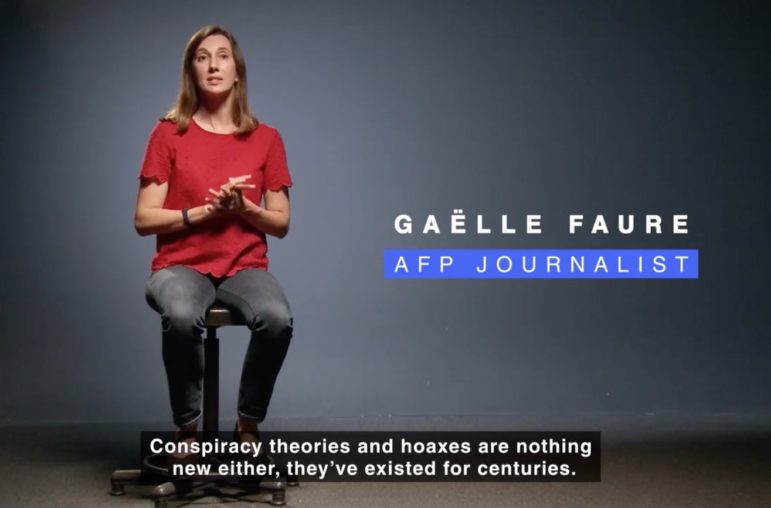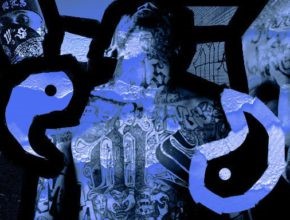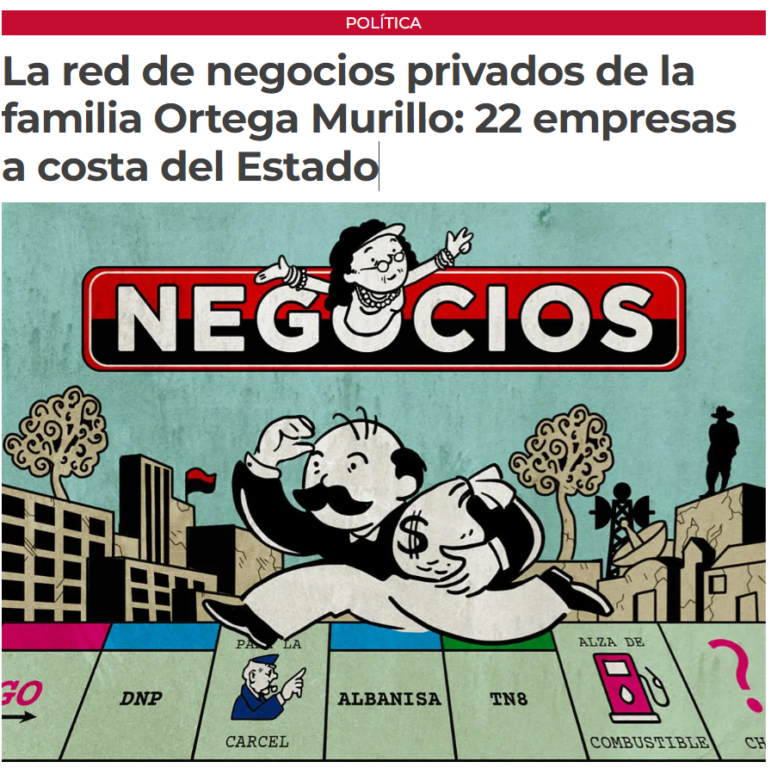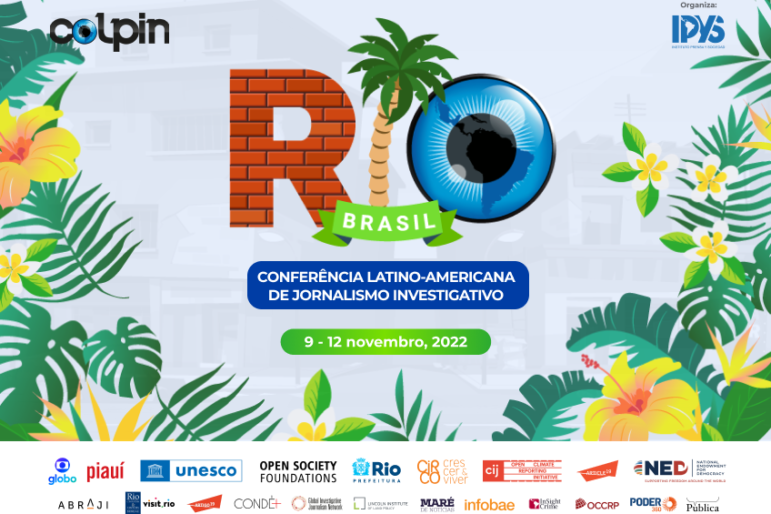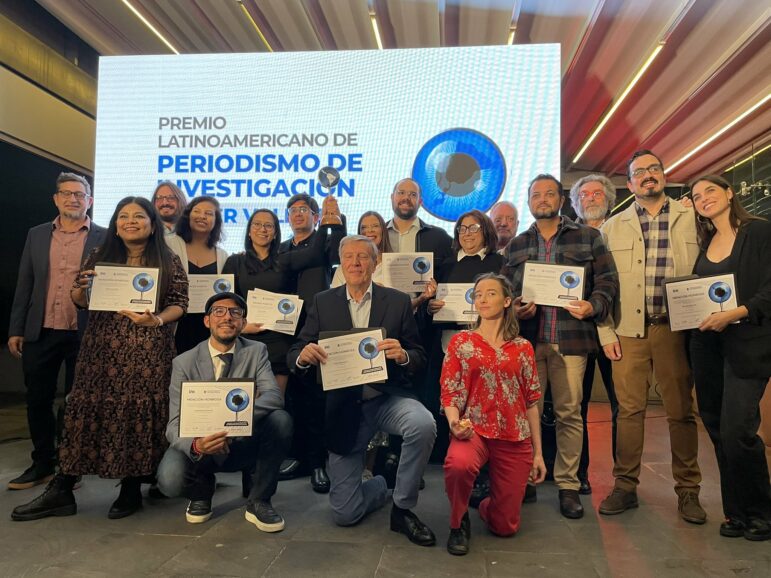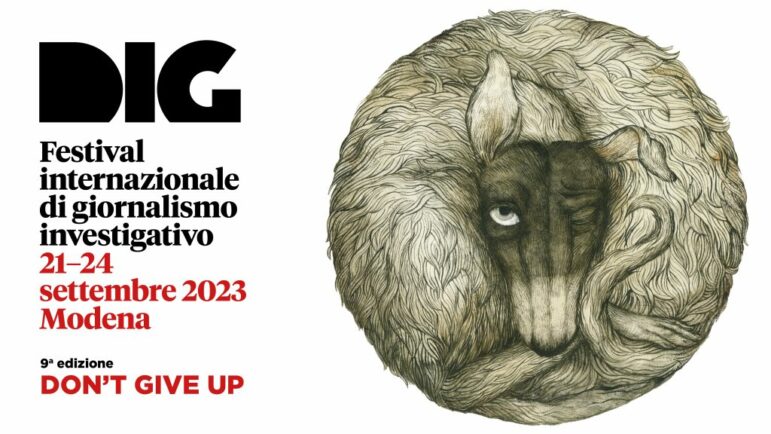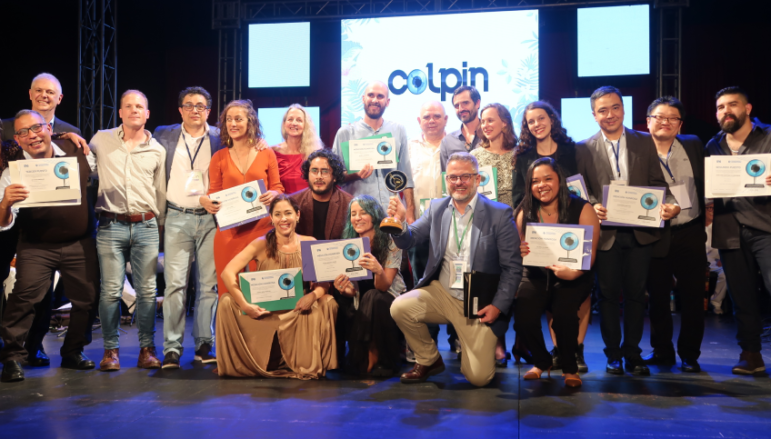

Latin America’s Leading Investigative Reporters Take Their Stories to Rio
Read this article in
Accusations of sexual harassment against the head of a state-owned bank, the transnational growth of Salvadorian gang MS13, and the striking accumulation of wealth by the president and his family in one of Central America’s poorest countries. These were some of the investigative topics among the prize-winning stories featured at the 2022 Latin American Conference on Investigative Journalism (COLPIN, for its initials in Spanish).
This year the conference — the most important investigative journalism gathering in the region — took place in Rio de Janeiro, from November 9 to 12, with 89 speakers and 220 participants from 21 countries. The conference is organized by Instituto Prensa y Sociedad (IPYS), a Lima-based organization that is one of Latin America’s leading media NGOs.
Conference attendees were able to attend panels and workshops, get inside details about notable investigations from the region, and learn about the challenges of reporting in repressive press environments and in exile. Participants could also immerse themselves in local journalism projects, one of which was learning how local investigative reporters work in Rio’s favelas, which are low-income neighborhoods in the city.
One of the highlights of the conference is the Javier Valdez Latin American Award for Investigative Journalism. Valdez, a Mexican journalist known for his investigations on organized crime in the state of Sinaloa, was murdered in 2017.
The jury for that prize consisted of some of the leading names in investigative and data journalism in the Americas, including Mexico’s Daniel Lizárraga, Costa Rica’s Giannina Segnini, Brazil’s Fernando Rodrigues, Argentina’s Santiago O’Donnell, and Lise Olsen from the US, who together selected the winning projects from more than 200 applications. The Lincoln Institute of Land Policy also gave awards for three investigations related to urban policy, sustainable development, and climate change at the conference.
Jurors pointed out how important watchdog reporting is for democracy in the region and for holding those in power to account, while other reporters noted the importance of continuing to work despite threats from those in power. “It is important that we say to our authorities that journalism will continue to exist despite the attacks,” said the Brazilian journalist Rodrigo Rangel. “We will respond to the attacks with more journalism.”
Award Winners
Three investigations were chosen for the Javier Valdez prize this year — coming in first, second, and third place.
1. A Scandal of Sexual Harassment at the Heart of the Government of Jair Bolsonaro; Rodrigo Rangel, Fabio Leite, and Jeniffer Gularte — Metrópoles, Brazil
At the end of 2021, a group of employees at Brazil’s Caixa Econômica Federal, one of the largest state-owned banks in Latin America, accused the bank’s then-president, Pedro Guimarães, of sexual harassment.
The story, which won first place in the Javier Valdez awards, was broken by journalists at Metropóles, a Brazilian online news site founded in 2015 and based in Brasília. The reporters managed to track down five employees who worked in teams close to Guimarães. While the alleged victims remained anonymous in the story, the Metropóles team collected and cross-referenced information about official trips and other elements like cell phone messages to corroborate the allegations.
At the time the claims were made public, the outgoing Brazilian president Jair Bolsonaro — who has a close relationship with the banker — said he saw nothing compelling in the testimonies. “Fortunately, the reporters thought there was,” said juror Fernando Rodrigues, who runs Brazilian news portal Poder360. “Democracy gains a lot when citizens and voters know their rulers.”
The day after the report was published, Guimarães resigned. (In his resignation letter, he said the accusations were “not true and do not reflect my professional or personal attitude.”) Five vice presidents at the bank also left in the following weeks. “It is our role to shed light on these abuses,” said Rangel as he received the award. “Abuses that, in this case, happened on the highest scale of Brazilian power.”
2. MS13 and Co.; Juan José Martínez — Insight Crime, El Salvador
The investigation that came in second analyzed how the Salvadoran gang MS13 evolved from modest beginnings to become a transnational crime powerhouse with business investments throughout the Northern Triangle countries of El Salvador, Guatemala, and Honduras, as well as Mexico.
Journalist and anthropologist Juan José Martínez spent several years investigating the group to understand the different ways the gang has gained strength internationally. The project features interviews with influential leaders of MS13, with the goal of better understanding how and why the organization has become — as the investigation put it — “a monster with a thousand heads.”
“I would like to dedicate this award to my sources, who risked their lives just by talking to me,” Martínez said as he received the award. He also flagged the importance of journalists in a region facing a series of democratic challenges. “Journalists are the last obstacle that dictators have not been able to crush.”
Jury member Daniel Lizarraga, a former El Faro editor who was recently expelled from El Salvador, said that the story was “splendid, beautifully written, and with an impressive investigation behind it.”
3. The Wealth of the Ortega Murillo Family; Octavio Enríquez — Confidencial, Nicaragua
Nicaragua is a country hemorrhaging journalists. The entire editorial staff of one of the oldest newspapers in Nicaragua — La Prensa — now works from exile, after its offices were seized by the government and three of its directors jailed. At least 100 reporters are believed to have left, but many continue reporting from outside the country.
“Four shirts and two pants. That was all I put in my luggage when I decided to leave Nicaragua,” investigative journalist Octavio Enríquez wrote in 2021 about fleeing into exile. The reporter — whose investigation received third place in the Javier Valdez prize — told the audience in Rio that after working on this story his choices were to flee, or be jailed.
Enríquez’s investigation paints a picture of the extensive business networks linked to the presidential family. He used documents from the Public Registry and information from the Nicaraguan Social Security Institute (INSS) to analyze the reach of family’s connections, the key companies they exercise control over, and their interests in businesses as diverse as telecommunications and oil.
“In this case, they are investigating [President] Daniel Ortega and [his wife Rosario] Murillo in Nicaragua. Right now. With that information I knew this piece was very important for journalism in our region today,” said Santiago O’Donnell, an Argentinian journalist and member of the jury.
“I receive this COLPIN award on behalf of a confiscated newsroom that believes in free journalism,” Enríquez said during the ceremony and on his personal Facebook account. “I would like to thank the Confidencial team and the sources that helped us. They are the ones who guide us to delve into the dark. I can’t find a better way to define investigative journalism in a dictatorship. Hopefully, more and more people from the inside will help us to continue to report about Nicaragua.”
Finalists
Other investigative reports that made the longlist for the Javier Valdez award came from across Latin America and the Caribbean, and show that watchdog journalism is alive and well in the region. They include:
Argentina
Inside “Primer Comando Capital,” a Brazilian Narco Group in Argentina
Germán de los Santos — La Nación
Brazil
The Prevent Senior Case
Guilherme Balza — TV Globo
iFood’s Hidden Advertising Machine
Clarissa Levy, Thiago Domenici, Marina Dias — Agência Pública
Yanomami Children Suffer from Malnutrition and Lack of Medical Care
Alexandre Hisayasu, Valéria Oliveira — Fantástico (Rede Globo)
Colombia
The Hidden Fortune of a Belgian Prince in Cartagena
Charlotte de Beauvoir, Lorenzo Morales, Sophia Gómez — Cerosetenta
Cuba
Investigating Claims of Sexual Abuse by Cuban Musician Fernando Bécquer
Mario Luis Reyes — El Estornudo
Haiti
Kidnapping in Haiti: Caught in Fear
Milo Milfort — Connectas
Mexico
DNA Traffickers
Paula Mónaco Felipe, Wendy Selene Pérez, Luis Brito, Miguel Tovar — Pie de Pagina
The Call for Help from the IMSS Hospital in Tula was Ignored
Zedryk Raziel — Animal Político
Panama
Pearl Island, a VIP Island with Preferential Treatment
Sol Lauria — Revista Concolon
Puerto Rico
Lost Paradise
Omaya Sosa Pascual, Kayla Young, Víctor Rodríguez Velázquez, Freeman Roger, Gabriela Carrasquillo — Centro de Periodismo Investigativo
Venezuela
Secret Corridor Series
Joseph Poliszuk, María de los Ángeles Ramírez, María Antonieta Segovia y Minerva Vitti — Armando.info and El País
The Lincoln Institute of Land Policy Award Winners
Tulum, an Illegal Paradise
Alejandro Melgoza Rocha — N+, Mexico
What You Need to Know about the Land Management Plan in Bogotá
Mónica Rivera Rueda — El Espectador, Colombia
The Inhabitable City: Housing Redensification or Destruction?
Andrés de la Peña — Zona Docs, Mexico
Additional Resources
COLPIN Showcases Latin America’s Best Muckraking
Forced Out: Latin America’s Investigative Reporters Pushed into Exile
How They Did It: Collaborating Across a Continent on Latin America’s Untold Migrant Stories
 Ana Beatriz Assam is GIJN’s Portuguese editor and a Brazilian freelance journalist. She worked for the newspaper O Estado de São Paulo as a freelancer covering a range of subjects, mainly with data journalism in the Politics section. She also worked with the Brazilian Association of Investigative Journalism (Abraji).
Ana Beatriz Assam is GIJN’s Portuguese editor and a Brazilian freelance journalist. She worked for the newspaper O Estado de São Paulo as a freelancer covering a range of subjects, mainly with data journalism in the Politics section. She also worked with the Brazilian Association of Investigative Journalism (Abraji).
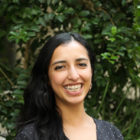 Andrea Arzaba is GIJN’s Spanish Editor. As a journalist and media professional, Andrea has dedicated her life to documenting the stories of people in Latin America and Latinx communities in the United States. Her work focuses on issues around freedom of expression, climate change, migration, and women’s leadership.
Andrea Arzaba is GIJN’s Spanish Editor. As a journalist and media professional, Andrea has dedicated her life to documenting the stories of people in Latin America and Latinx communities in the United States. Her work focuses on issues around freedom of expression, climate change, migration, and women’s leadership.




